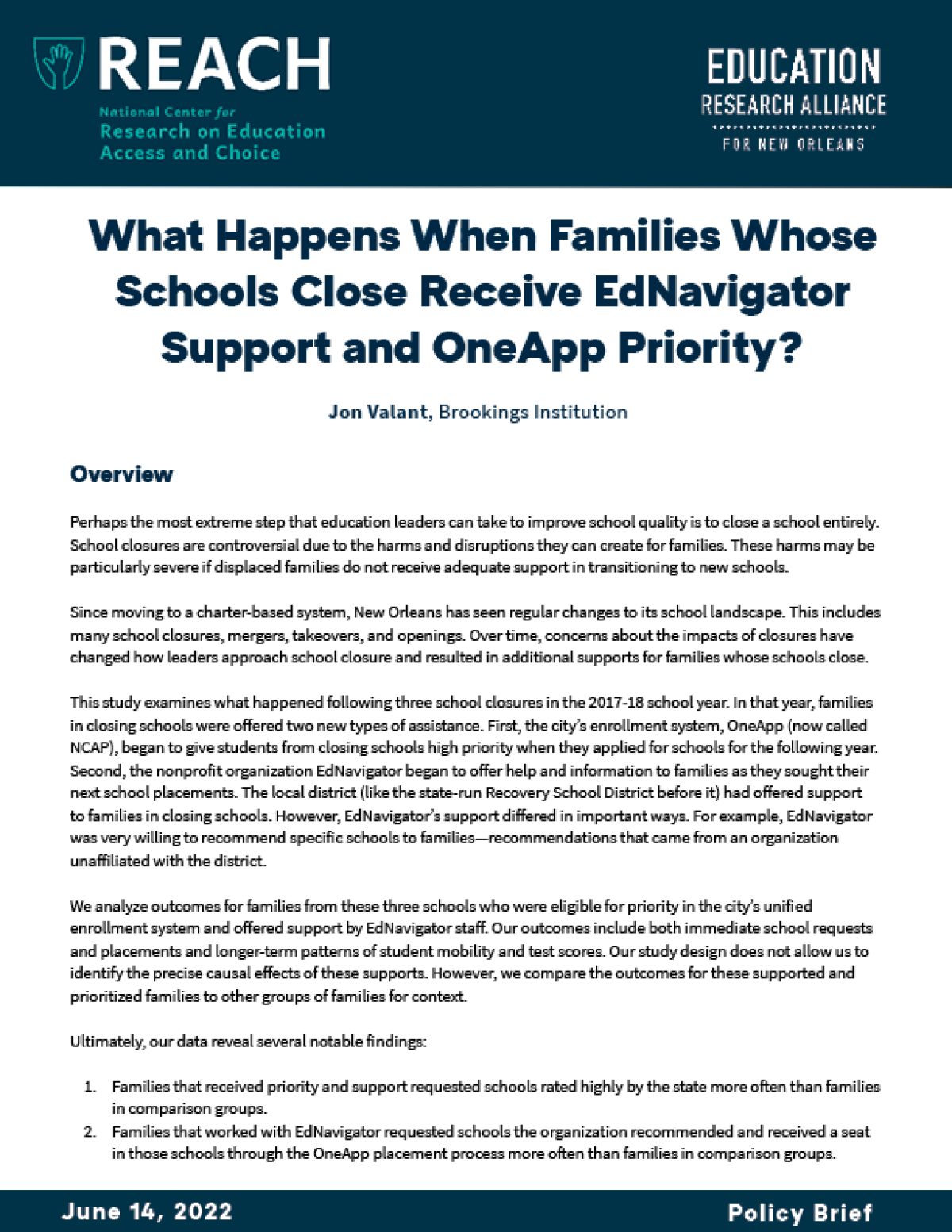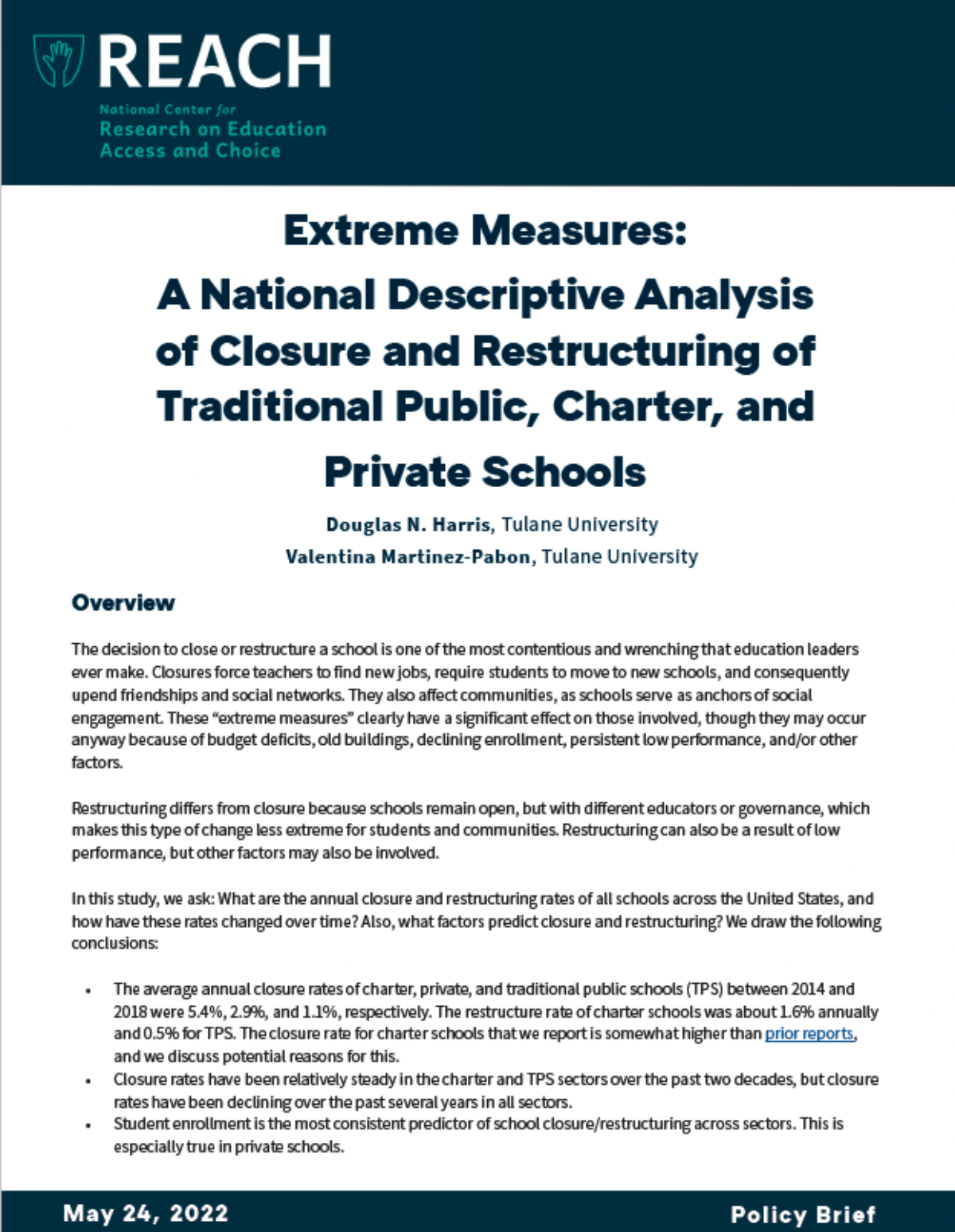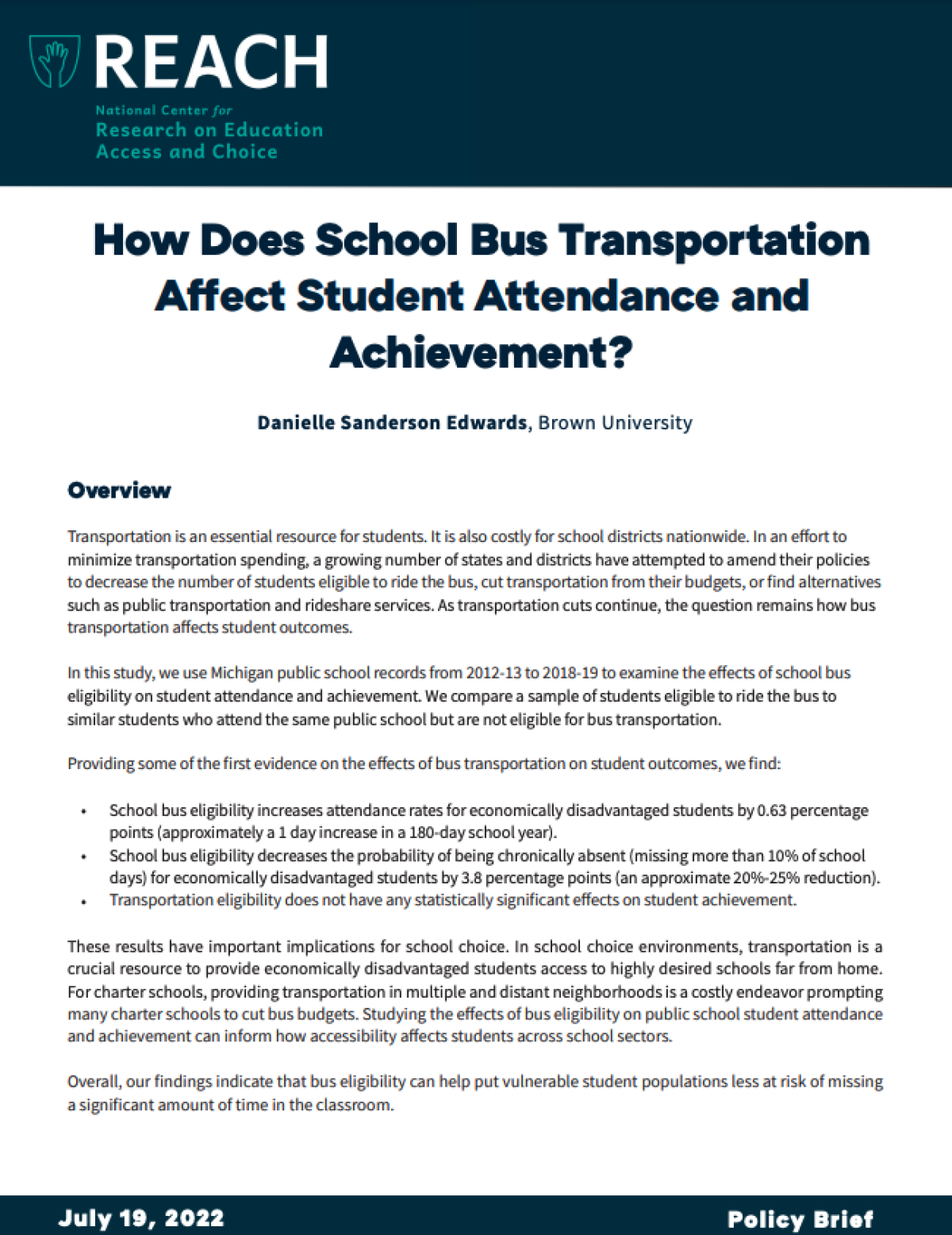Perhaps the most extreme step that education leaders can take to improve school quality is to close a school entirely. School closures are controversial due to the harms and disruptions they can create for families. These harms may be particularly severe if displaced families do not receive adequate support in transitioning to new schools.
Since moving to a charter-based system, New Orleans has seen regular changes to its school landscape. This includes many school closures, mergers, takeovers, and openings. Over time, concerns about the impacts of closures have changed how leaders approach school closure and resulted in additional supports for families whose schools close.
This study examines what happened following three school closures in the 2017-18 school year. In that year, families in closing schools were offered two new types of assistance. First, the city’s enrollment system, OneApp (now called NCAP), began to give students from closing schools high priority when they applied for schools for the following year. Second, the nonprofit organization EdNavigator began to offer help and information to families as they sought their next school placements. While the district had previously offered assistance to families in closing schools, EdNavigator’s support differed in that it came from an organization unattached to the district that was, in many cases, recommending specific schools as potentially good options.
We analyze outcomes for families from these three schools who were eligible for priority in the city’s unified enrollment system and offered support by EdNavigator staff. Our outcomes include both immediate school requests and placements and longer-term patterns of student mobility and test scores. Our study design does not allow us to identify the precise causal effects of these supports. However, we compare the outcomes for these supported and prioritized families to other groups of families for context.
Ultimately, our data reveal several notable findings:
- Families that received priority and support requested schools rated highly by the state more often than families in comparison groups.
Families that worked with EdNavigator requested schools the organization recommended and received a seat in those schools through the OneApp placement process more often than families in comparison groups.
- Families that received priority and support were more likely to receive a placement in high-rated schools than families in comparison groups, but many students (in all groups) were again placed in low-rated schools.
- Families that received support and priority were more likely to complete the choice process during the OneApp’s first placement round (when there are more seats available at high-rated schools) and remain in the same school for at least a year after enrolling than families in comparison groups.
- Test scores for students from supported and prioritized families increased slightly after exiting their closing schools. However, they remained far below state averages.


